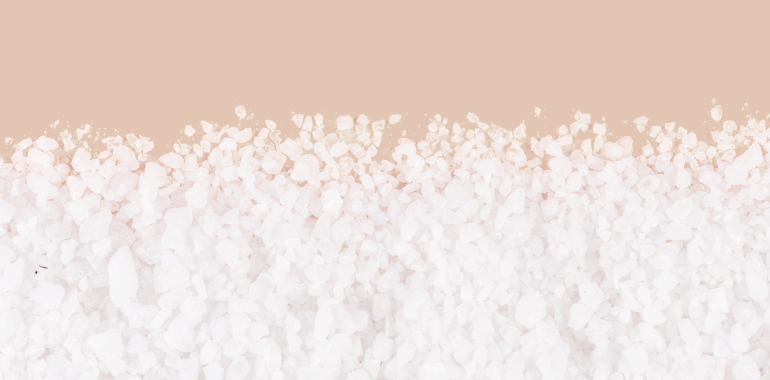Table Of Contents
Does Salt Break a Fast? The Science Behind the Question
Intermittent fasting has gained tremendous popularity, but questions about what’s allowed during fasting periods often create confusion. One common query is whether consuming salt disrupts a fast. This article examines the scientific evidence behind salt intake during fasting periods, helping you make informed decisions about your fasting practice.
Key Takeaways: Salt doesn’t contain calories and typically doesn’t break a fast from a metabolic perspective. It can help maintain electrolyte balance during extended fasts. Different salt varieties offer varying mineral profiles, with Pink Himalayan salt being particularly mineral-rich. While salt intake is generally acceptable during fasting, moderation is crucial to avoid blood pressure issues or digestive stimulation.
Will Salt Break a Fast? The Essentials You Need to Know
If you’re considering a longer fast period, you’ve probably heard varying opinions about whether salt is allowed. Is it okay to ingest sodium during your extended fasting window, or will it break the fast?
To help clear up any confusion and understand what the science says about eating salt while fasting, this post will give an overview of all the facts that need to be considered when making this decision.
From metabolic effects and hunger triggers to electrolyte balance importance – I’ll dive deeper into why fasting with or without salt works differently in each individual and how it affects one’s health.
The short answer is that salt doesn’t contain calories, so it won’t disrupt the caloric aspect of fasting. Many fasters even add a pinch of salt to their water to help maintain electrolyte balance during their fasting periods. However, some religious and cultural fasting traditions specifically prohibit salt consumption, which explains why salt is not allowed in fast in certain contexts.
Salt and Autophagy: Impact on Cellular Cleansing
Absolutely! Think of autophagy as the cell’s housekeeping service, tidying up by breaking down and repurposing its bits and pieces. Now, sprinkle in some salt and fasting — not too much, just a pinch.
While we all love a dash of salt on our fries, going overboard might give our cellular cleaning crew a tough time. Excess salt throws a wrench in the autophagy works, potentially dialing back on the cellular TLC. So, for the sake of your cells’ well-being, keep that salt shaker in check!
Moderate salt consumption typically doesn’t significantly hinder autophagy, which is one of the primary benefits many seek from fasting. The key is balance – a small amount of salt can help maintain electrolyte levels without interfering with your body’s cellular cleaning processes.
The Metabolic Effects of Salt During Fasting
When examining whether salt breaks a fast, I focus on its metabolic impact. Unlike sugar or proteins, salt doesn’t trigger insulin release or significantly affect blood glucose levels. This means it generally doesn’t disrupt the metabolic state of fasting that many people seek to maintain.
A common side effect for those doing a ketogenic fast or transitioning into ketosis is the “keto flu,” characterized by headache, fatigue, and irritability. This happens partly due to the loss of sodium. Supplementing with salt can mitigate these symptoms.
Salt plays a critical role in maintaining nerve impulse transmission and muscle contractions. A little salt during fasting can help ensure these physiological processes run smoothly. Without adequate sodium, you might experience muscle cramps, headaches, or dizziness during extended fasts.

Types of Salt and Their Impact on Fasting
Pink Himalayan Salt: Mineral-Rich Benefits
Pink Himalayan salt, while rich in minerals, doesn’t contain calories. Using it in moderation typically won’t disrupt the caloric aspect of fasting. Some fasters even sprinkle a bit in their water to maintain electrolyte balance during fasting.
Unlike regular table salt, Pink Himalayan contains up to 84 trace minerals, including calcium, potassium, and magnesium. It’s typically less refined than table salt, ensuring its minerals remain intact and free from additives. Many health enthusiasts prefer it during fasting for its purer mineral composition.
Sea Salt vs. Table Salt: What’s the Difference?
Just like other salts, sea salt doesn’t have calories. Adding a bit to your water during a fast can help with electrolyte balance without breaking the fast in terms of calorie intake. Sea salt undergoes minimal processing compared to table salt, retaining more natural minerals.
Table salt is highly processed and often contains additives like anti-caking agents and sometimes even dextrose (a sugar). These additives are present in tiny amounts but might be a consideration for strict fasters. Sea salt, being less processed, offers a more natural alternative for those concerned about additives.
Does Iodized Salt Break a Fast?
Many people wonder “can we eat iodized salt in fast” periods. Using iodized salt in moderation shouldn’t break your fast from a caloric or metabolic perspective. Iodized salt in fast regimens provides the essential mineral iodine, which supports thyroid function.
For those asking “can we eat iodised salt in fast” (the British English spelling), the answer remains the same. Iodised salt in fast periods doesn’t contain calories and won’t spike insulin levels when consumed in small amounts. However, as with any salt, moderation is key to avoid potential blood pressure issues.
Rock Salt and Mineral-Rich Variants
Rock salt isn’t just about sodium chloride; variants of mineral-rich salt bring a sprinkle of Mother Nature’s diversity to the table!
- Many variants of rock salt, especially those like Pink Himalayan salt, are celebrated for their rich mineral content, including trace amounts of calcium, potassium, and magnesium.
These mineral-rich salt variants offer additional trace elements that might be beneficial during fasting periods when you’re not getting nutrients from food. The mineral content varies between different rock salt sources, with some offering more diverse profiles than others.
Also, read – Does Stevia Break a Fast? Decoding the Debate
How to Use Salt While Fasting
Finding the Right Amount
Typically, a pinch in your water or taken directly a few times a day suffices. Remember, too much can lead to excessive sodium intake! For Pink Himalayan salt, generally, a pinch or two in water can help maintain electrolyte balance during a fast. Overdoing it may lead to excessive sodium intake.
I recommend always paying attention to your body’s signals and adjusting accordingly. If you experience headaches, dizziness, or muscle cramps during fasting, a small pinch of salt might help alleviate these symptoms. Conversely, if you notice bloating or increased thirst, you might be consuming too much salt.
Salt Water: A Fasting-Friendly Hydration Option
Salt water doesn’t contain calories. Drinking it won’t induce a metabolic response in terms of caloric intake. It aids in hydration and replenishing electrolytes during a fast, especially if you’re feeling lightheaded or experiencing muscle cramps.
- While salt water doesn’t break a fast in a caloric sense, excessive intake might stimulate the digestive system, so moderation is key.
A simple salt water formula for fasting includes 1/4 to 1/2 teaspoon of salt dissolved in a liter of water. This creates a gentle electrolyte solution that can help maintain hydration without breaking your fast. Some fasters sip this throughout the day rather than consuming it all at once.
Avoiding “Keto Flu” with Strategic Salt Intake
When your body transitions into ketosis during fasting, you might experience what’s commonly called “keto flu.” These symptoms include headaches, fatigue, irritability, and muscle weakness. Increasing salt intake can significantly reduce these symptoms by helping maintain proper electrolyte balance.
During fasting and ketosis, the body excretes more sodium through the kidneys, making salt supplementation particularly important. A small pinch of salt under the tongue or in water when symptoms begin can provide quick relief for many experiencing keto flu symptoms during their fasting periods.
Benefits of Salt During Fasting
Supporting Electrolyte Balance
During fasting, especially extended periods, your body’s electrolyte balance can become disrupted as you’re not getting minerals from food. Salt provides sodium, one of the key electrolytes your body needs to function properly. Maintaining proper sodium levels helps regulate fluid balance between and within cells.
When fasting, you naturally excrete more sodium through urine and sweat. Without replenishment, this can lead to electrolyte imbalances that cause headaches, fatigue, and muscle cramps. A small amount of salt can help prevent these issues and make your fasting experience more comfortable.
Maintaining Nerve and Muscle Function
Sodium is vital for nerve impulse transmission and muscle contractions. A little salt during fasting can help ensure these physiological processes run smoothly. Without adequate sodium, your nerves can’t efficiently transmit signals, and your muscles may cramp or function poorly.
This becomes particularly important during extended fasts when your body isn’t getting sodium from food sources. Adding a small amount of salt to your water or taking it directly can help maintain optimal neural function and prevent muscle cramps that might otherwise make fasting uncomfortable.
Preventing Dehydration
Proper hydration during fasting requires more than just water – electrolytes play a crucial role. Salt helps your body retain the right amount of water, preventing dehydration even as you increase your water intake. Without sufficient sodium, you might experience a condition called hyponatremia (low blood sodium), which can occur if you drink too much plain water without electrolytes.
Adding a small pinch of salt to your water during fasting helps your body absorb and utilize the water more effectively. This is particularly important during longer fasts when electrolyte depletion becomes more significant. The salt helps maintain the proper osmotic balance, ensuring water goes where it’s needed in your body.
Risks of Fasting Without Salt
Electrolyte Imbalance Dangers
Sodium is necessary for maintaining fluid balance. Can salt break a fast? So, without salt during extended fasts, you might risk dehydration or imbalances that lead to symptoms like dizziness or muscle cramps. During fasting, your body continues to excrete sodium through urine and sweat, but you’re not replacing it through food.
This can lead to a condition called hyponatremia, or low blood sodium, which in severe cases can cause confusion, seizures, and even coma. While extreme cases are rare in healthy individuals doing intermittent fasting, milder symptoms are common and can make fasting unnecessarily uncomfortable.
Blood Pressure Concerns
Salt helps regulate blood pressure. A lack of it might lead to a sudden drop, especially during extended fasting. While many people are concerned about high blood pressure from excess salt, the opposite problem can occur during fasting – blood pressure dropping too low.
This can lead to lightheadedness, dizziness, and fatigue. For those with already low blood pressure or those taking blood pressure medications, fasting without salt can potentially cause dangerous drops in blood pressure. Monitoring how you feel and possibly checking your blood pressure during extended fasts can help you determine if you need to add some salt.
Signs You Need More Salt
Your body will generally let you know if you need more salt during fasting. Here are some common signals to watch for:
- Headaches that don’t resolve with adequate hydration
- Muscle cramps, particularly in the legs
- Feeling dizzy or lightheaded when standing up
- Unusual fatigue or weakness
- Heart palpitations or racing heartbeat
If you experience these symptoms during fasting, try adding a small pinch of salt to water or directly under your tongue. If symptoms persist or worsen, it’s important to break your fast and consult with a healthcare provider, as severe electrolyte imbalances can be dangerous.

Why Salt Is Sometimes Restricted During Fasting
Religious and Cultural Perspectives
Many people wonder why salt is not allowed in fast practices in certain religious and cultural contexts. In some traditions, fasting is about spiritual discipline and sacrifice, which may include abstaining from salt as a form of denying pleasure or comfort. Salt has historically been valued for enhancing flavor, so avoiding it represents a form of sacrifice.
For example, in certain Hindu fasting traditions, salt is specifically avoided on particular fasting days. Similarly, in some Eastern Orthodox Christian fasting practices, salt might be restricted along with other seasoning agents. These restrictions aren’t about metabolic benefits but rather spiritual discipline and mindfulness.
Medical Considerations
From a medical perspective, salt restriction during fasting might be recommended for individuals with certain health conditions. People with high blood pressure, heart failure, kidney disease, or edema are often advised to limit sodium intake, regardless of whether they’re fasting or not.
For these individuals, the concentration of salt that naturally occurs during fasting (as the body retains less water) might temporarily worsen their condition. Medical fasting protocols, such as those used before certain diagnostic tests or surgeries, may also restrict salt to ensure accurate results or reduce complications.
The Final Verdict: Salt’s Place in Your Fasting Routine
Does salt break a fast? From a purely metabolic and caloric perspective, the answer is generally no. Salt doesn’t contain calories, doesn’t spike insulin, and typically doesn’t interfere with the benefits of autophagy when used in reasonable amounts.
However, the answer becomes more nuanced when considering specific fasting goals. If you’re fasting for religious or spiritual reasons that specifically prohibit salt, then obviously you should follow those guidelines. If you’re fasting for metabolic health or weight management, a small amount of salt is unlikely to interfere with your goals and may actually help you maintain your fast more comfortably.
For most people practicing intermittent fasting, a moderate amount of salt can be beneficial, helping to maintain electrolyte balance, prevent headaches and muscle cramps, and make the fasting experience more sustainable long-term. The key is moderation – a pinch in water or under the tongue when needed, rather than excessive amounts.
Listen to your body’s signals, consider your specific health conditions and fasting goals, and adjust your approach accordingly. When in doubt, consult with healthcare professionals familiar with fasting protocols to get personalized advice for your situation.
Alex is a health sciences writer with experience in sports performance and rehabilitation settings. His areas of expertise include health and fitness, sports nutrition, and injury prevention. He is passionate about health science education and health/wellness optimization for people of all ages.









